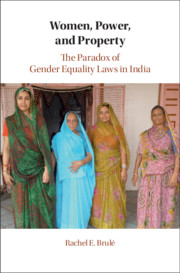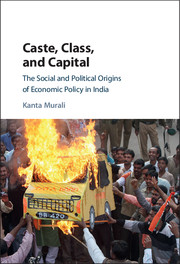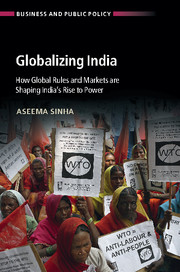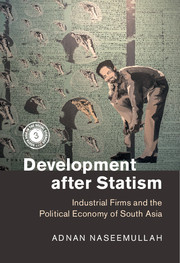Women, Power, and Property
Quotas for women in government have swept the globe. Yet we know little about their capacity to upend entrenched social, political, and economic hierarchies. Women, Power, and Property explores this question within the context of India, the world's largest democracy. Brulé employs a research design that maximizes causal inference alongside extensive field research to explain the relationship between political representation, backlash, and economic empowerment. Her findings show that women in government – gatekeepers – catalyze access to fundamental economic rights to property. Women in politics have the power to support constituent rights at critical junctures, such as marriage negotiations, when they can strike integrative solutions to intrahousehold bargaining. Yet there is a paradox: quotas are essential for enforcement of rights, but they generate backlash against women who gain rights without bargaining leverage. In this groundbreaking study, Brulé shows how well-designed quotas can operate as a crucial tool to foster equality and benefit the women they are meant to empower.
- Develops a theory explaining the connection between women's political representation and economic power
- Provides new evidence on the benefits and costs of electoral quotas for women, a globally used remedy for political inequality
- Offers policy-relevant strategies to anticipate and address backlash against reforms that economically empower women
Reviews & endorsements
‘In this powerful and subtle book, Rachel Brulé combs through an array of micro-level data for clues regarding the causes of and obstacles to gender inequality in India. One of her most stunning findings is that femicide actually increases when gender-equal inheritance laws are enforced – unless families are freed from the expectation that a daughter's property is forfeited to in-laws upon marriage. This book is a triumph of social science and a model for empirical scholarship on gender.' Frances McCall Rosenbluth, Yale University, Connecticut
‘Brulé's study breaks new ground in exploring the economic effects of women's political representation. Her ‘gatekeeper' theory shows how the presence of female officials in local governments in India shapes whether women are able to access their rights and improve their economic status. The result is a clear illustration that meaningful change for women requires shifts in social norms and practices – not just in formal legal reforms.' Melani Cammett, Harvard University, Massachusetts
‘The study of property rights is undergoing a resurgence in political science. Rachel Brulé's stunning new book is at the forefront of this movement. Expertly combining the best tools of area studies and modern social science, Brulé shows how increases in women's political representation have altered social and property relations in India. Anyone interested in how low status groups can challenge a deeply entrenched status quo should read this book.' Timothy M. Frye, Columbia University, New York
‘… this book offers a conceptually nuanced and methodologically innovative analysis of gendered land rights. It thereby adds a new dimension to understandings of the determinants of the quality of democracy in India, and potentially elsewhere too.’ Narendra Subramanian, Perspectives on Politics
Product details
October 2020Adobe eBook Reader
9781108871341
0 pages
47 b/w illus.
This ISBN is for an eBook version which is distributed on our behalf by a third party.
Table of Contents
- 1. Introduction
- 2. A theory of political representation and economic agency
- 3. Property and power: a political history of the Hindu joint family
- 4. Where are the women? Investigating reform's roots
- 5. The politics of property rights enforcement
- 6. The long arm of resistance: refusal to care for parents
- 7. Representation and violence: gender equality and sex selection
- 8. Conclusion.









